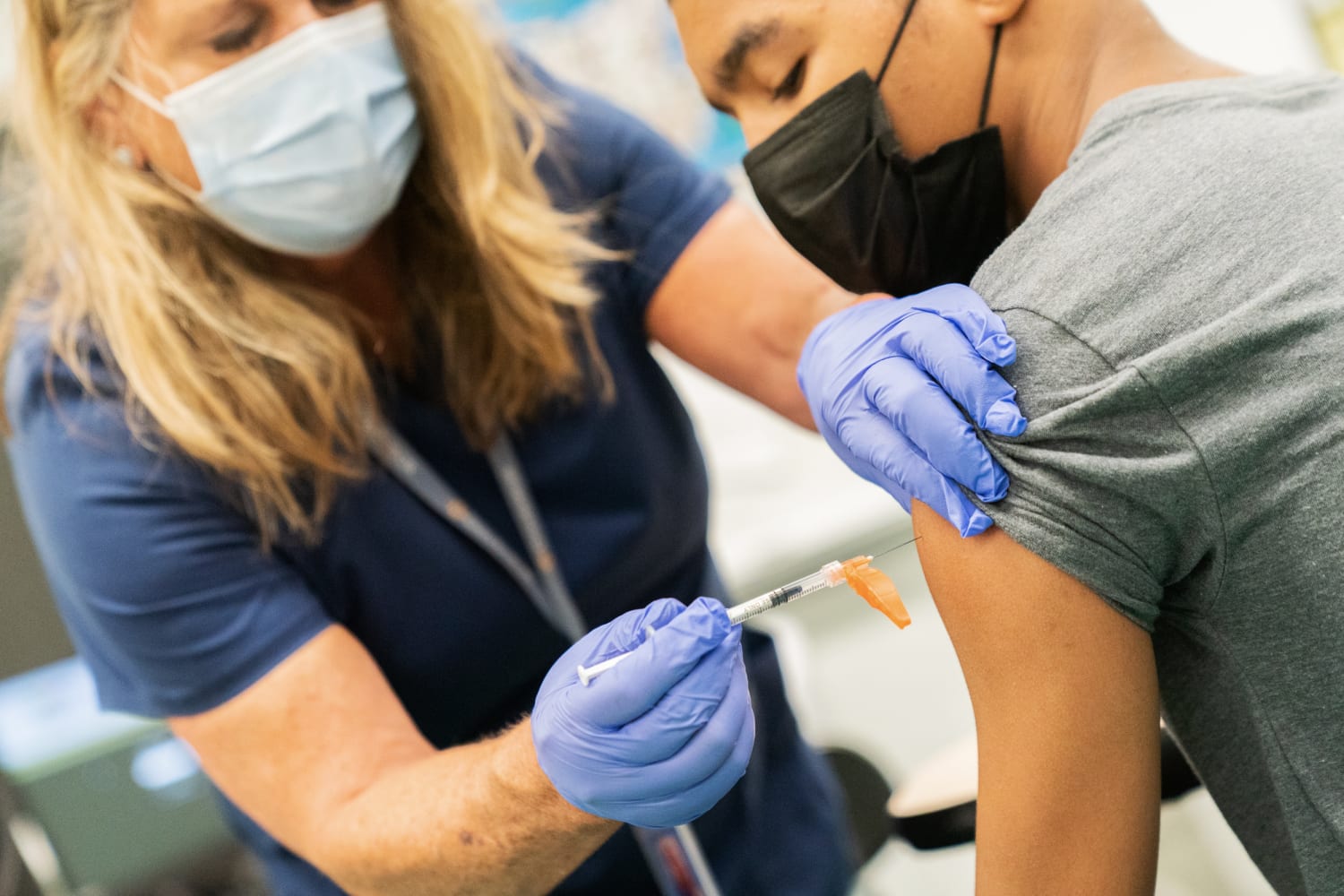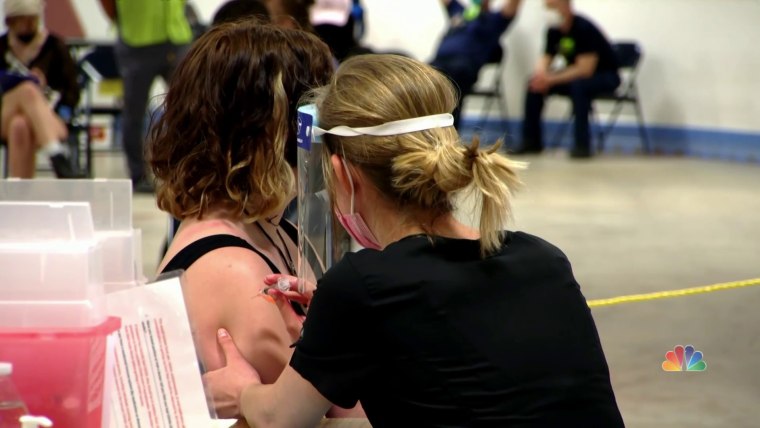A Food and Drug Administration advisory panel voted against a Covid-19 booster for the general population Friday, a decision that could put the agency at odds with Biden administration officials who have been pushing to begin giving out booster shots to healthy adults as soon as next week.
The advisory committee was first asked to vote specifically on whether a booster dose of Pfizer-BioNTech’s Covid vaccine was safe and effective for people 16 and up. The panel voted overwhelmingly against that recommendation, citing concerns about the safety of the boosters in younger people.
Full coverage of the Covid-19 pandemic
The advisory committee is following the vote with a discussion about possible modifications to the booster question and will vote again Friday afternoon.
Following the advisory committee meeting, the booster question will go to a group of advisers to the Centers for Disease Control and Prevention, which will take up the issue in a two-day meeting next week.
The Biden administration announced last month that it planned to begin offering a booster shot to the general population starting the week of Sept. 20, essentially starting the countdown for the FDA and the CDC to act.
Members of the FDA advisory committee struck a skeptical tone during the meeting, questioning Pfizer’s conclusions that immunity is waning to the point that vaccinated people of all ages need an additional dose to protect against hospitalization and death six months after they’ve received their second dose.
“We’re being asked to approve this as a three-dose vaccine for people 16 years of age and older, without any clear evidence if the third dose for a younger person when compared to an elderly person is of value,” said committee member Dr. Paul Offit, director of the Vaccine Education Center at Children’s Hospital of Philadelphia.
Representatives from Pfizer said the need for a booster is based on data from Israel, which showed that severe cases increased tenfold from July to August, despite the fact that 60 percent of the population there was fully vaccinated.
But data from the United States, presented by the CDC, found the vaccines continued to provide high protection against severe disease, hospitalization and death.
Dr. Sara Oliver, an epidemic intelligence service officer at the CDC, noted that Israel and the U.S have different definitions for what’s considered severe disease. In Israel, she said, it is defined as lower oxygen levels and an elevated respiratory rate. In the U.S., severe disease refers to hospitalization or death.
The two countries also vary differently in population, pandemic and acceptance of vaccines. “You really have a very different situation in Israel than what we are facing here in the US at this point in time,” said Dr. Archana Chatterjee, an expert in pediatric infectious diseases at Rosalind Franklin University in Chicago.
The FDA advisory committee also raised questions about the safety of an additional dose, particularly in regard to the risk of myocarditis, a rare side effect that’s been seen primarily in males younger than 30.
Download the NBC News app for full coverage of the Covid-19 pandemic
Israeli researchers reported Friday that among 2.8 million people who had been given a third dose, only one case of myocarditis had been reported. However, it’s only been two weeks since younger adults have been given a booster in Israel, and may not reflect the full scope of cases.
“I have a serious concern about myocarditis and young people,” Dr. James Hildreth, CEO of Meharry Medical College in Nashville, Tennessee, and a member of the advisory committee. “The booster shots induce a very strong response that is going to amplify the risk for myocarditis in those individuals.”
Surgeon General Vivek Murthy said earlier Friday during a White House Covid task force briefing that the booster plan was always contingent upon the two agencies’ decision.
“We have always said that this initial plan would be contingent on the FDA and the CDC’s independent evaluation,” he said. “We will follow that evaluation and their recommendations, we will make sure our final plan reflects it.”
Though three Covid vaccines are in use, Friday’s vote focused on the Pfizer vaccine only. Neither Moderna nor Johnson and Johnson has applied to the FDA for approval of additional doses.
Pfizer’s vaccine, sold under the brand name Comirnaty, received full FDA approval for ages 16 and older in August. This means doctors have the freedom to administer a third dose to patients they deem necessary for the shot; however physicians — and especially retail pharmacies and public health departments where the majority of Covid vaccines are administered — are sure to pay close attention to the outcome of Friday’s meeting.
The FDA previously OK’d an additional shot for people with compromised immune systems, who did not react strongly enough to the initial doses of the vaccines.
This is a breaking news story. Please check back for updates.
Follow NBC HEALTH on Twitter & Facebook.
Source: | This article originally belongs to Nbcnews.com











